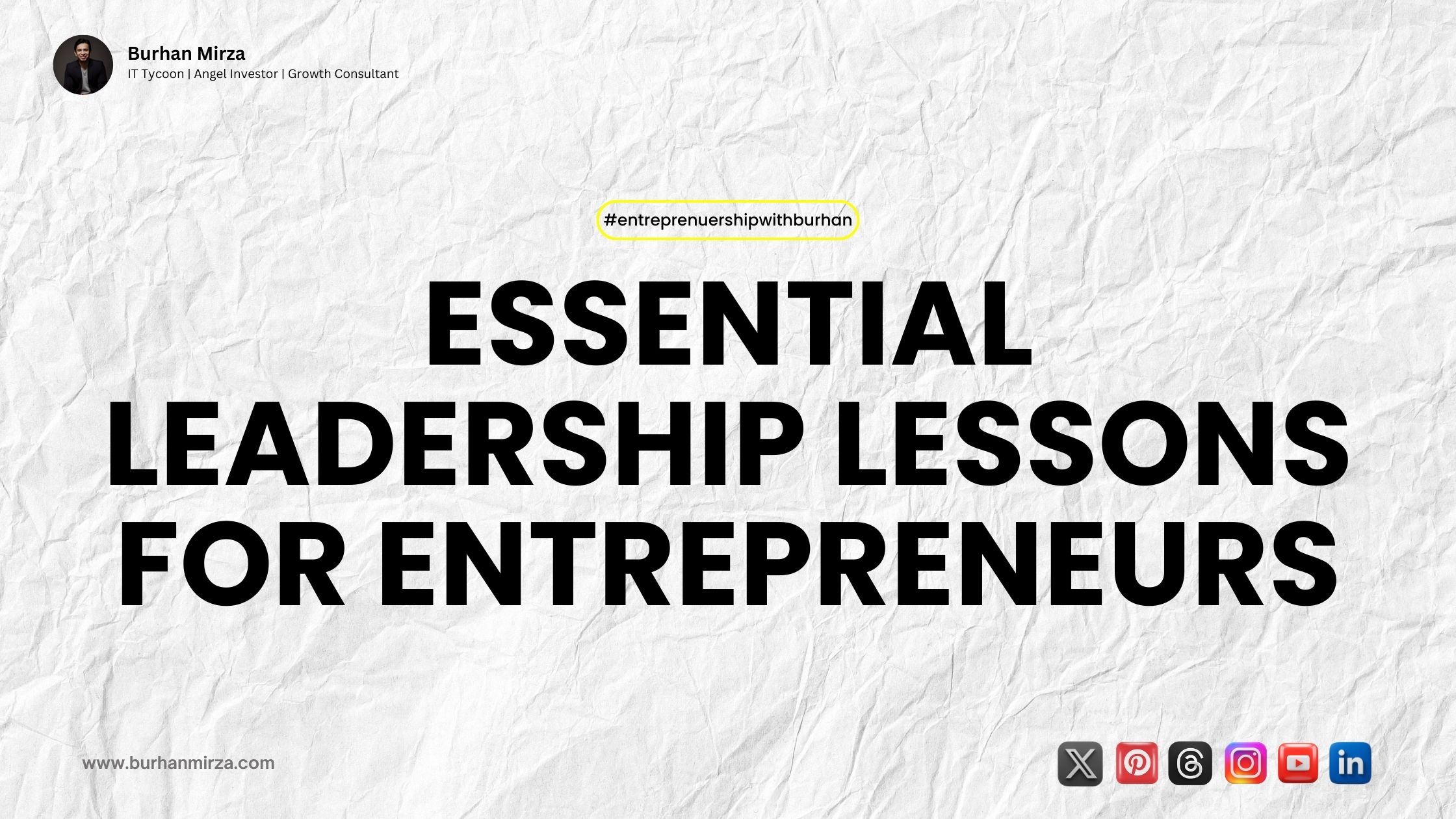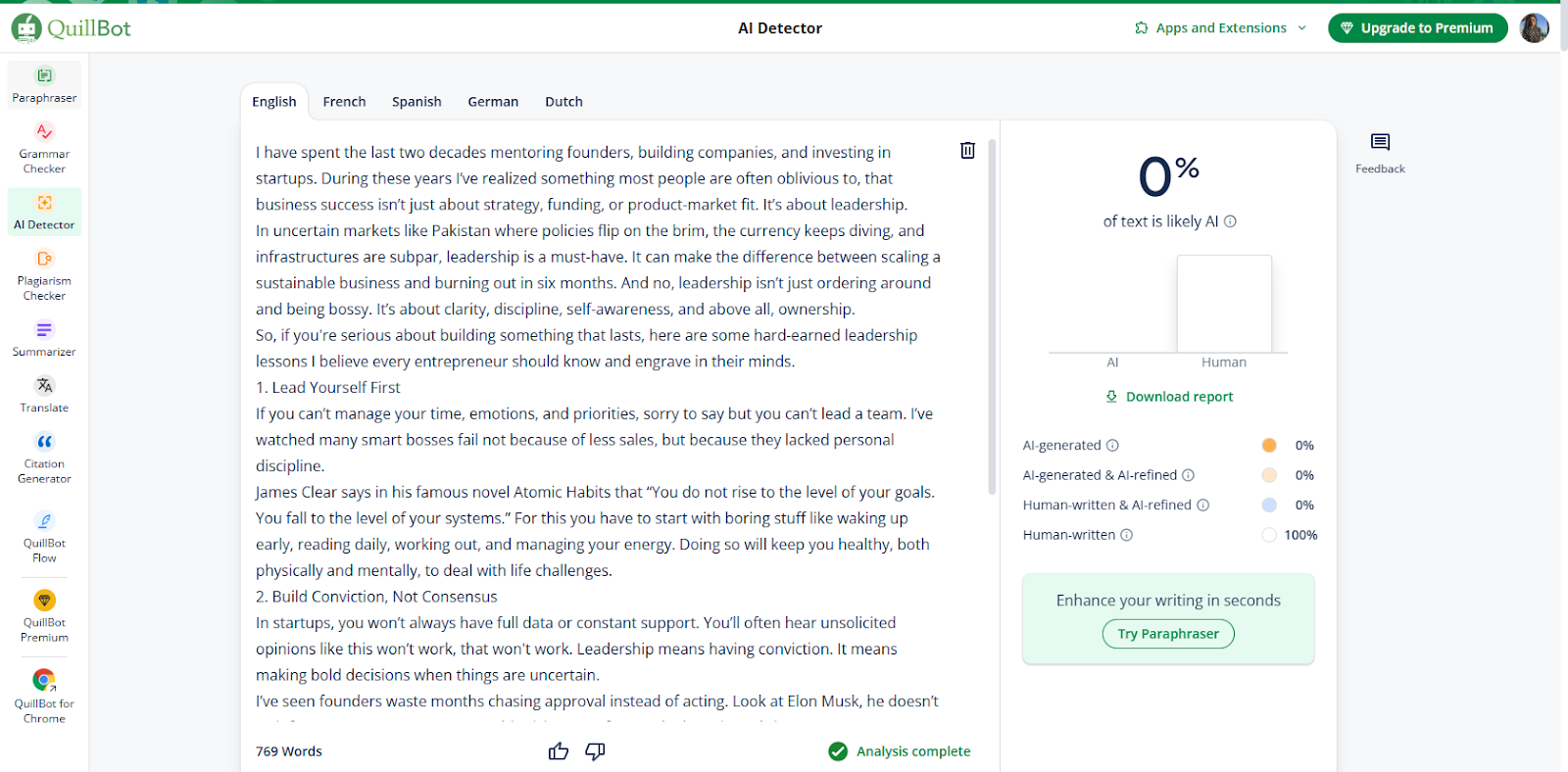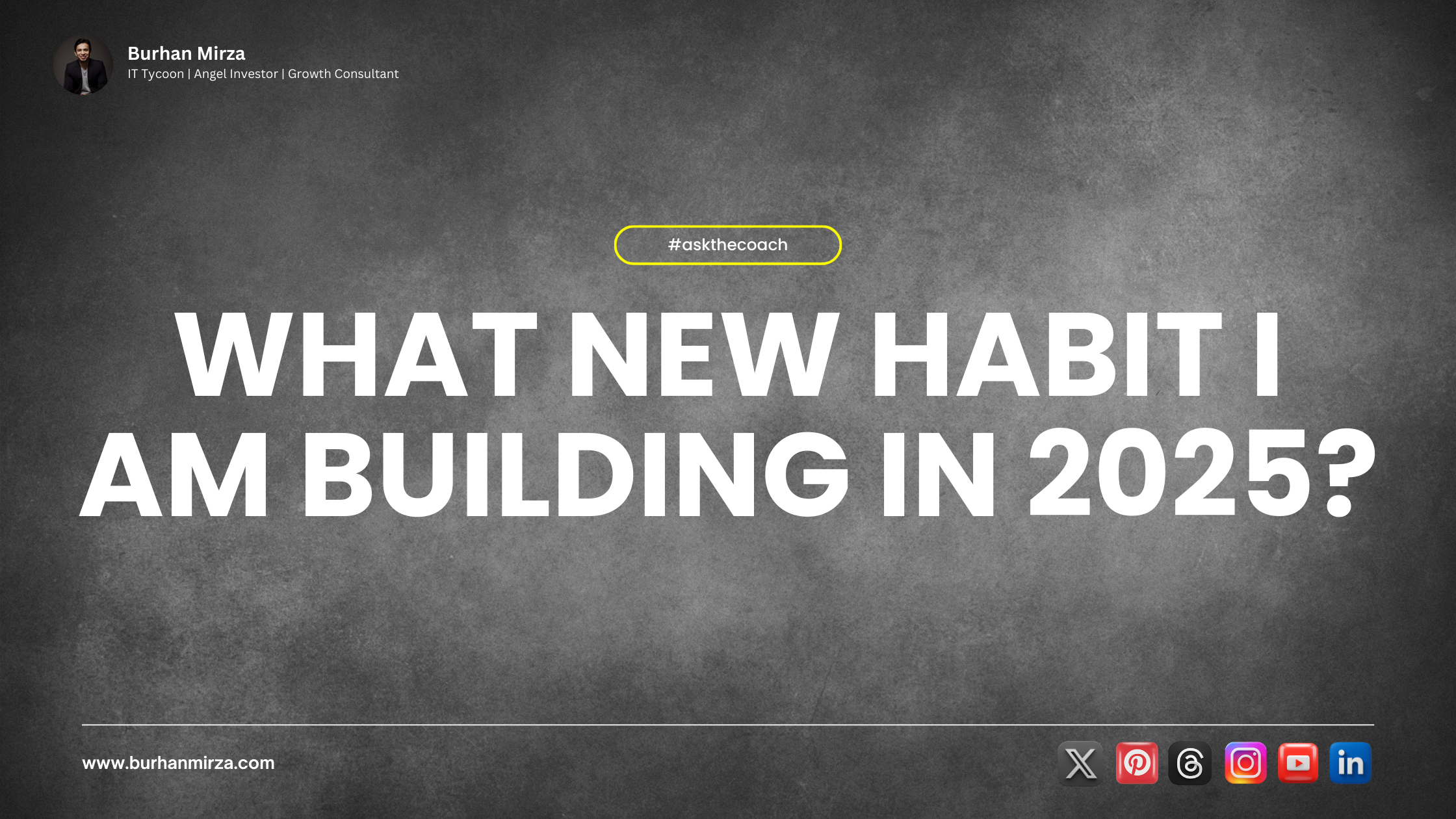 Blogs
Blogs
Muhammad Burhan Mirza: Essential Leadership Lessons for Entrepreneurs

I have spent the last two decades mentoring founders, building companies, and investing in startups. During these years I’ve realized something most people are often oblivious to, that business success isn’t just about strategy, funding, or product-market fit. It’s about leadership.
In uncertain markets like Pakistan where policies flip on the brim, the currency keeps diving, and infrastructures are subpar, leadership is a must-have. It can make the difference between scaling a sustainable business and burning out in six months. And no, leadership isn’t just ordering around and being bossy. It’s about clarity, discipline, self-awareness, and above all, ownership.
So, if you're serious about building something that lasts, here are some hard-earned leadership lessons Muhammad Burhan Mirza believes every entrepreneur should know and engrave in their minds.
1. Lead Yourself First
If you can’t manage your time, emotions, and priorities, sorry to say but you can’t lead a team. I’ve watched many smart bosses fail not because of less sales, but because they lacked personal discipline.
James Clear says in his famous novel Atomic Habits that “You do not rise to the level of your goals. You fall to the level of your systems.” For this you have to start with boring stuff like waking up early, reading daily, working out, and managing your energy. Doing so will keep you healthy, both physically and mentally, to deal with life challenges.
2. Build Conviction, Not Consensus
In startups, you won’t always have full data or constant support. You’ll often hear unsolicited opinions like this won’t work, that won't work. Leadership means having conviction. It means making bold decisions when things are uncertain.
I’ve seen founders waste months chasing approval instead of acting. Look at Elon Musk, he doesn’t wait for everyone to agree. He sets his vision, acts fast, and adapts in real-time.
3. Listen With Intent, Decide With Confidence
A good leader is someone who listens more than they speak. But when it’s time to make decisions, they don’t back down. Whether it’s hiring, pivoting, or letting go of a bad idea, as a good leader you need to be calm, firm, and clear.
Data and intuition can help and guide you with this. But the real skill is making decisions under pressure and then holding yourself responsible for whatever the outcome is.
4. Culture > Strategy
Peter Drucker says it best: “Culture eats strategy for breakfast.” You can have the best GTM plan in the world, but if your team is toxic, slow, or insecure, the plan won’t matter.
The leaders who succeed are the ones who build high-trust environments where people feel seen, heard, and challenged. Here accountability and productive criticism are a two-way street. So, build such cultures early on before it becomes toxic for you.
5. Be Transparent Even When It Hurts
Pakistan’s entrepreneurial space is still young. Most first-time bosses don’t realize how powerful transparency is. When your team knows where the company stands, they respect you more. Yes, even when you're running out of money.
Don’t fake it. Don’t ghost your team when things go south. Real leaders show up, spit out the truth, and rally their people around it.
6. Give Credit. Take Blame.
I learned this the hard way: a weak leader takes all the credit happily and blames others for anything that goes south. On the other hand, a strong one gives credit and takes responsibility where it's due.
Your job as a leader isn’t to be the smartest person in the room or boss others around. It’s to make your team shine. If something fails, step forward. If it succeeds, step back. That’s how you earn your team’s loyalty.
7. You Don’t Need to Know Everything—But You Need to Hire People Who Do
A mistake I made in my early years was trying to be a one man show and doing everything myself. Leadership is about leverage. That means bringing in people who are smarter than you in specific domains and letting them own their space.
If you’re the bottleneck in your business, you’re not a leader. You’re just a workaholic CEO. Always look for people who can fill the gaps in your team that you yourself can’t. This won’t make you look dumb but add value to your team.
Final Thoughts
Pakistan doesn’t just need more startups, it needs better leaders. Leaders who understand that great leadership isn’t loud, but consistent. This country has no shortage of problems. But that also means it has no shortage of opportunities. If you want to solve them, start by leading yourself. Then build a team and then build a culture. The rest will follow.

 Muhammad Burhan Mirza
Muhammad Burhan Mirza My Story
My Story Events
Events Social Highlights
Social Highlights Books
Books Blog
Blog Press Kit
Press Kit  Contributions
Contributions 

